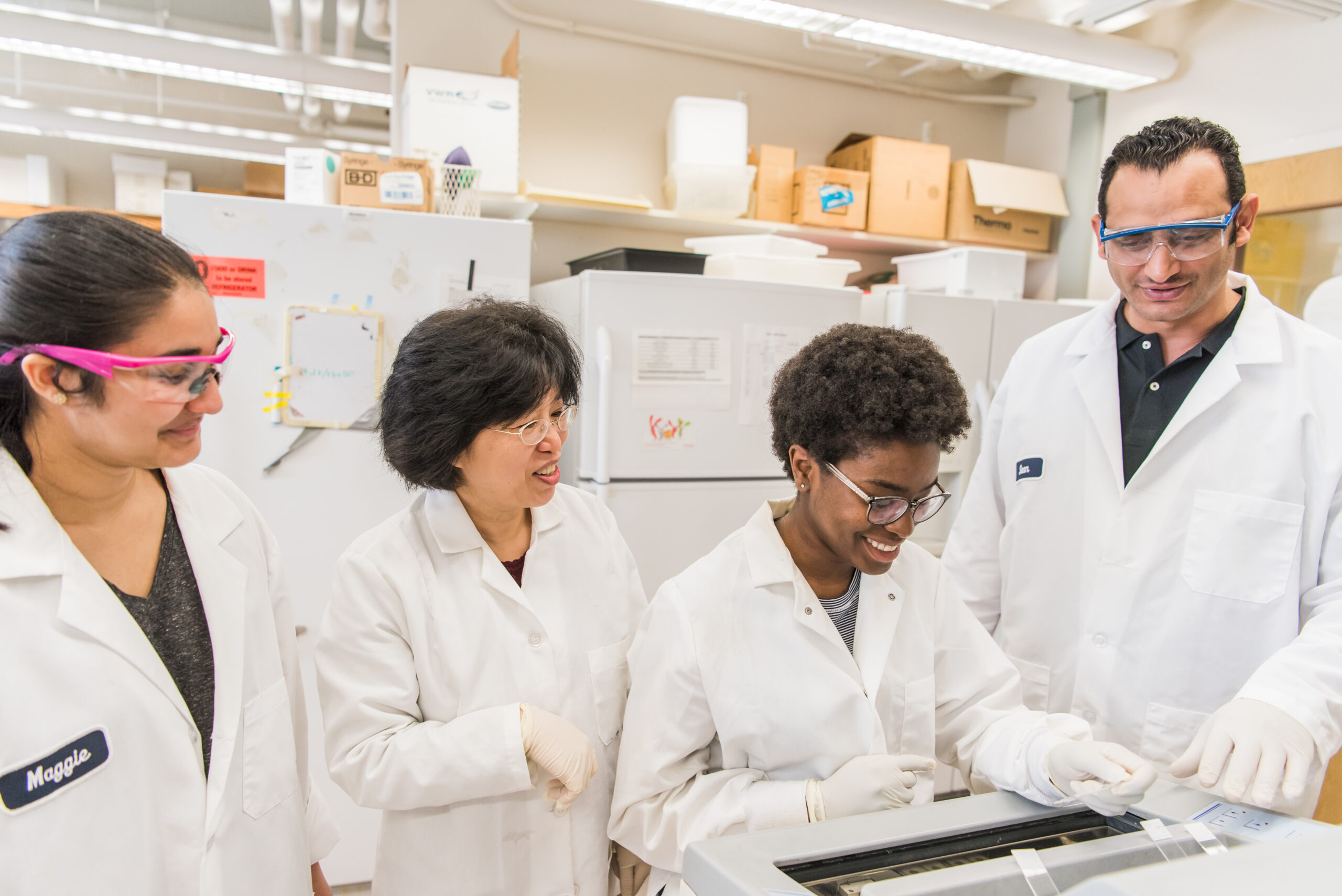UMBC has received a new five-year, $1.4 million grant to further expand the university’s tradition of innovative undergraduate teaching and strong partnerships with community colleges to support the success of students from all backgrounds. The Improving Undergraduate Science Education (IUSE) grant from the National Science Foundation will focus on teaching and learning in biology, following similar work on the chemistry curriculum in 2016 and 2017.
At the center of this work will be close collaboration with area partners Howard Community College, Anne Arundel Community College, Community College of Baltimore County, and Montgomery College.
The first aim of the grant focuses on aligning curriculum in biology across all the partner institutions to improve the transfer student experience.
It’s about “getting faculty in the same room to talk about how biology is taught,” says Laura Ott, executive director for IUSE and director of the College of Natural and Mathematical Science’s Science Education Research Unit.
Faculty from all partner institutions will meet regularly to discuss course content and potential differences in class size, assessment methods, facilities, or teaching techniques that could impact the student experience. They’ll outline ways to either limit those differences or to better prepare students to anticipate them and feel confident in knowing how to handle them.
Biology by the numbers
The grant’s second goal creates the NEXUS Institute in Quantitative Biology, which builds on work by UMBC faculty to develop, implement, and evaluate biology teaching modules that incorporate quantitative reasoning skills. That work found that some students gained more from the modules than others. Transfer students in particular seemed to have more trouble applying their math skills to biology.
With this finding in mind, faculty from the partner institutions will work together throughout the year “to come up with a common set of modules to be used in the four core biology courses, so everyone is getting the same exposure, no matter what point they enter UMBC,” says biology professor Jeff Leips, one of the IUSE leads. The materials that are developed will be made completely public, so other institutions can utilize them as well. Instructors will also receive guidance on how to use the modules in their courses.
“The idea is that over five years we’ll develop a whole warehouse, a repertoire of these modules that people can mix and match to align with the cultures of their departments,” says Bill LaCourse, dean of the College of Natural and Mathematical Sciences at UMBC.“The modules are a tool to get people to talk, to give them something to think about,” he adds, “so they can build fruitful collaborations across their unique institutions founded in their shared commitment to student success.”
For Leips, helping biology students develop their quantitative reasoning skills “is exciting, because it’s necessary.” As science continues to become more quantitative, gaining the relevant skills is imperative to students’ long-term success. “You can’t get away with being a researcher or a medical practitioner without understanding quantitative applications,” he says. “There’s a societal need.”
Sharing skills
The third goal for the grant is to support faculty development. UMBC offers a certificate for instructors who want to embrace active learning and inquiry-based teaching practices. Under IUSE, Linda Hodges, director of UMBC’s Faculty Development Center, will work to make a similar certificate available to instructors from all the partner institutions.
“Cohesive, steady engagement” and “practice, feedback, and reflection” are known to encourage lasting change among teachers, explains Hodges, which, in turn, “is linked to improved student learning.”
Supporting educators in this way will also help them develop a sense of community and share their own knowledge of best practices with one another—as Dean LaCourse describes, “to take the best of everything we do and bring it together.” This work with faculty could also broaden the reach of the project, as that community of educators goes on to publish about successful, new techniques for teaching biology.
The new IUSE grant marks the third successful UMBC-community college partnership to improve the educational experience and learning outcomes for transfer students in the sciences. At their core, these partnerships “are about building relationships, better communication, and building a community that benefits the students, the faculty, and the institutions,” LaCourse says. “My students are your students, and your students are my students,” he adds. “The idea is to make a bigger tent, and not work as two institutions, but as one.”
Image: Weihong Lin (second from left), associate professor of biological sciences, works with her students in the lab. Photo by Marlayna Demond ’11 for UMBC.

